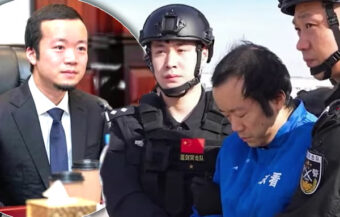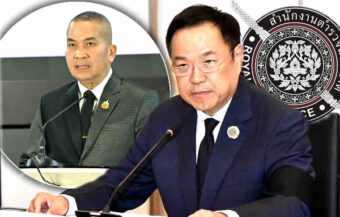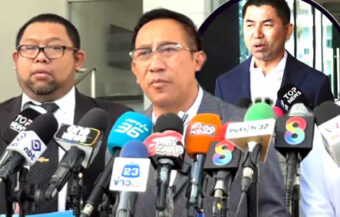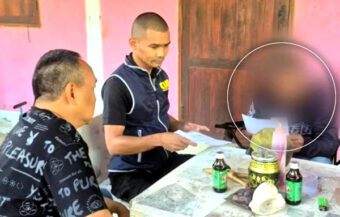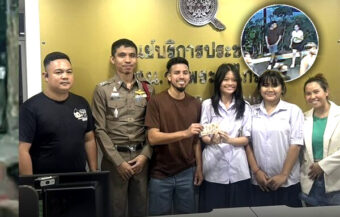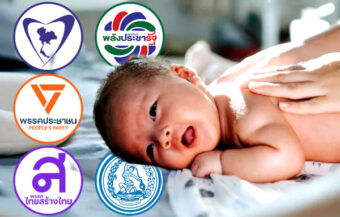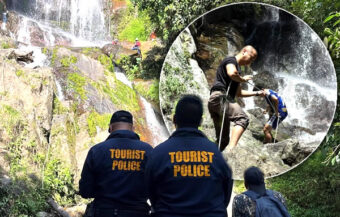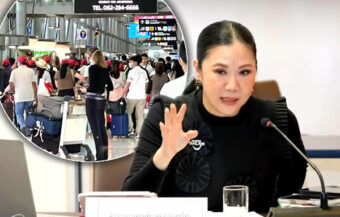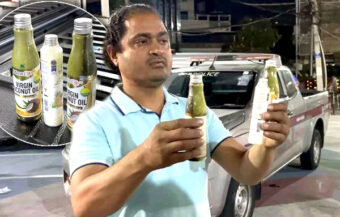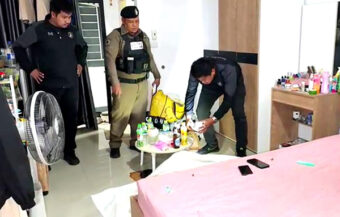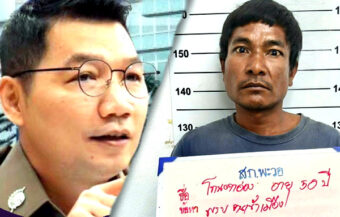Thailand pushes urgent border talks after a deadly clash near Chong Bok. One Cambodian soldier was killed as Thai forces repelled an incursion. Bangkok rejects Hun Sen’s fiery claims, warns against stoking tensions and insists only legal maps and the Joint Boundary Committee, a dispute resolution panel, can resolve matters.
Comments on Saturday by Cambodia’s de facto leader and strongman Hun Sen have stirred unease in Bangkok. His remarks came after a deadly clash between Thai and Cambodian forces in Ubon Ratchathani early Wednesday morning. One Cambodian soldier was killed and others were injured in the confrontation. The Thai military insisted it had responded appropriately, citing reports that Cambodian forces had attempted to alter the landscape under cover of night. On Sunday, Thai Foreign Minister Maris Sangiampongsa emphasised that Thailand was working urgently to resolve the border dispute. He spoke following a preparatory meeting ahead of a proposed session of the Joint Boundary Committee (JBC). Meanwhile, the border situation remains calm, although Thai forces are still on high alert.
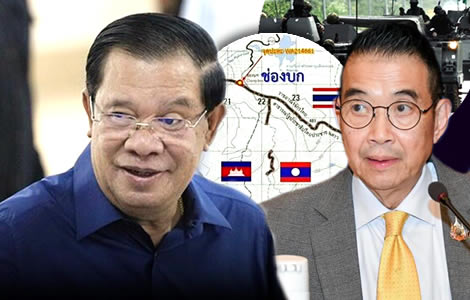
On June 1, 2025, Thailand’s Ministry of Foreign Affairs held a press briefing to address the recent border clash with Cambodia. The incident occurred on May 28 in Bu Pueai subdistrict, Nam Yuen district, Ubon Ratchathani, near the disputed Chong Bok area. A Cambodian soldier was killed after troops crossed into what Thailand insists is its territory. Thai forces returned fire, citing the need to defend national sovereignty under international law.
The Foreign Ministry stated clearly that Thai troops had acted lawfully. According to officials, they followed both Thai and international rules of engagement. Thailand expressed regret over the loss of life but maintained the action was proportionate.
In fact, authorities insisted it was necessary to prevent further incursion. The government stressed that diplomacy remains the priority, not armed escalation.
Thailand urges diplomacy after deadly Chong Bok clash but insists military acted within legal mandate
Foreign Minister Maris Sangiampongsa chaired a high-level meeting the same day. He confirmed that Thailand would push for a formal Joint Boundary Committee (JBC) session within two weeks. The aim is to ease tensions and resume stalled border demarcation talks with Cambodia. This JBC process, he said, is the only lawful way to resolve overlapping claims in the disputed area.
Although the clash raised fears of wider conflict, Maris noted the frontier is now calm. All border crossings remain open and functional. Thailand and Cambodia have also resumed official communication at both the military and diplomatic levels. Maris emphasised that this coordination must continue if peace is to hold.
After the incident, Maris contacted Cambodian Foreign Minister Prak Sokhonn directly. Both agreed to prevent further violence and to defuse the situation. On May 30, the Thai and Cambodian Army chiefs met to reaffirm military cooperation.
That same day, Maris also spoke with Cambodian Prime Minister Hun Manet during the Nikkei Forum in Japan. They pledged to resolve the issue peacefully and through existing bilateral frameworks.
Thailand and Cambodia reopen communication channels and promise peaceful resolution via JBC mechanisms
Therefore, Thailand is activating three coordination mechanisms. These are the JBC, the General Border Committee (GBC), and the Regional Border Committee (RBC). The JBC focuses on legal demarcation. The GBC handles broad military coordination. The RBC responds to urgent localised incidents. All three were already active before the clash, but Thailand now wants to reinforce them.
However, Maris also warned against public statements that could inflame tensions. He urged politicians and the media to avoid sharing unverified or provocative information. According to him, reckless claims or misinformation could derail the JBC process. Thailand, he said, remains committed to facts, law, and calm diplomacy.
Nikorndej Balankura, spokesperson for the Foreign Ministry, backed this position. He said Thai troops had acted defensively when faced with armed Cambodian soldiers crossing into Thai territory. Their response, he stressed, was limited and lawful. Importantly, Thailand does not seek confrontation.
Thai officials reinforce border coordination bodies and urge restraint in public discourse after deadly skirmish
Despite the incident, the overall situation remains stable. Nikorndej confirmed that all legal border checkpoints are operating normally. He noted that Cambodia has yet to confirm the date for the next JBC meeting. However, Thailand is ready to host at any time. Officials are standing by for word from Phnom Penh.
Asked about Facebook posts by former Cambodian Prime Minister Hun Sen, Nikorndej said they hold no legal weight. He added that Hun Sen’s statements are personal views, not Cambodian government policy. Still, the Thai government is monitoring the situation closely.
Hun Sen’s post on May 30 sparked controversy. In it, he claimed the Emerald Triangle area—including Chong Bok—rightfully belongs to Cambodia. He insisted Cambodian troops had occupied the area since before the 1991 Paris Peace Accords. He also referred to records from the United Nations Transitional Authority in Cambodia (UNTAC), implying they support Cambodia’s claim.
Moreover, Hun Sen said Cambodian forces would not withdraw from the area. He suggested that the matter be taken to the International Court of Justice (ICJ). He accused unnamed “Thai nationalist circles” of orchestrating a plan to seize Cambodian land. Additionally, he published old photos showing his visits to Chong Bok, trying to prove long-term Cambodian control.
Thailand dismisses Hun Sen’s claims over Chong Bok as personal and warns against escalation on social media
Shortly after, Thai users reported difficulty accessing Hun Sen’s Facebook page. That triggered speculation about possible restrictions on social media access or content blocking. However, Thai authorities have not commented on the matter.
On June 1, Thai army spokesman Lt. Gen. Winthai Suvari responded to Hun Sen’s claims. He dismissed them as legally irrelevant. Winthai emphasised that only the JBC has the mandate to settle border issues. Unilateral claims or social media posts, he said, have no standing.
According to Winthai, Thailand respects historical records. However, border demarcation must proceed through mutual agreement. He stated that interpretations of the past often differ between countries. Therefore, both sides must rely on facts confirmed through the JBC.
Thailand, he added, has always adhered to international law. Although the army remains prepared for all contingencies, its goal is de-escalation. Thai forces, he said, are under strict orders to coordinate with the Foreign Ministry and avoid provoking conflict.
Thai military says only JBC can resolve disputes and urges reliance on facts instead of nationalist narratives
Winthai stressed that the May 28 response was necessary. Cambodian troops had advanced into Thai land. Thai forces responded with restraint and discipline. Their goal was to repel the incursion, not inflame tensions.
He also confirmed that the military backs diplomatic resolution. Thailand will defend its territory but prefers peaceful negotiation. The JBC is still seen as the best path forward. However, progress depends on Cambodia’s willingness to cooperate under the agreed framework.
Meanwhile, Thai officials remain firm. They argue that border disputes can only be resolved through maps, joint surveys, and technical reviews. Legal demarcation requires agreement on evidence—not emotion, politics or public pressure. The Thai side insists it has followed all steps in the 2000 Memorandum of Understanding (MoU), which governs joint border work.
Thai military reaffirms support for JBC and warns only legal maps and evidence can settle long-running dispute
The JBC last held a formal session in 2022. Since then, tensions have simmered due to slow progress on demarcation. The central sector, which includes Chong Bok, remains especially contentious. Both countries accuse the other of provocations.
Nevertheless, Thailand is urging calm. It wants to avoid a return to the kind of armed standoff seen in 2008–2011 around Preah Vihear. That conflict, which also began with a border dispute, led to casualties on both sides. Today, Thai leaders say lessons have been learned. Military action should not replace diplomacy.
Khmer soldier killed in deadly gunfire between Thai and Cambodian armies near Ubon Ratchathani
Palang Pracharat Party leader General Prawit Wongsuwan vows to oppose Thai Cambodian maritime memo
Officials say that if Cambodia responds constructively, the JBC can resume within days. Survey teams are ready. Legal advisers are prepared. Thailand is waiting for Cambodia’s green light. Until then, soldiers remain deployed but under strict rules of engagement.
In short, Thailand is standing firm but not looking for a fight. The message from Bangkok is clear: defend the border, but do it with law—not bullets.
Join the Thai News forum, follow Thai Examiner on Facebook here
Receive all our stories as they come out on Telegram here
Follow Thai Examiner here
Further reading:
Khmer soldier killed in deadly gunfire between Thai and Cambodian armies near Ubon Ratchathani
Thaksin to address state board on drug suppression despite howls of protest from human rights groups
Health Minister Somsak launches regulatory blitz to outlaw non-medical cannabis use within 40 days





